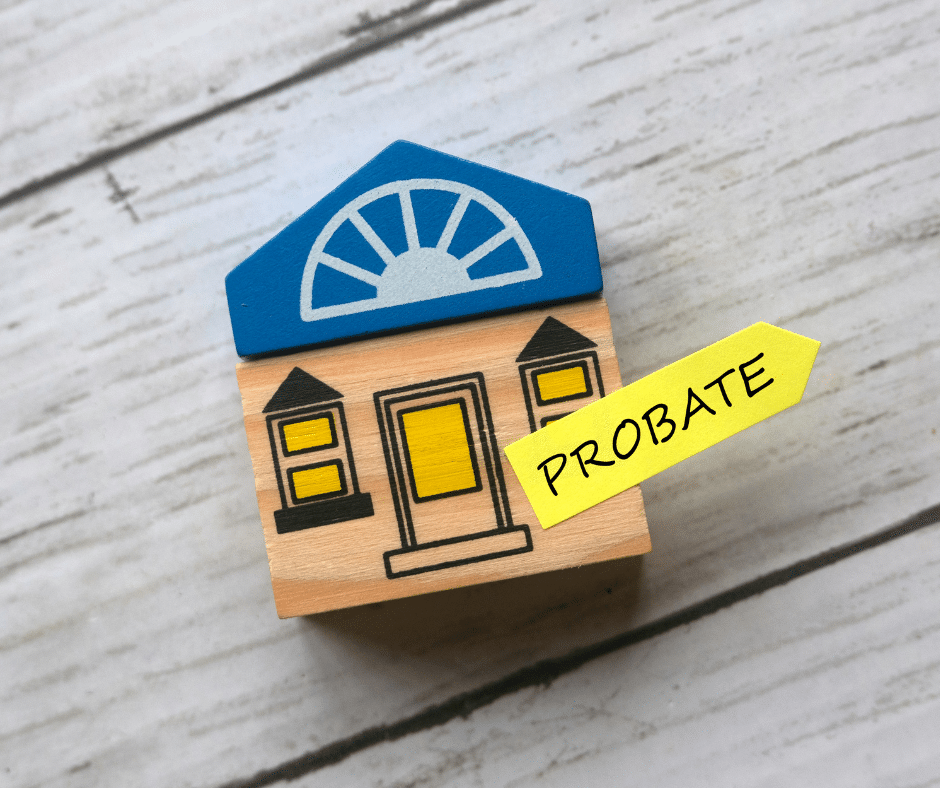 When it comes to estate planning, many people may not realize the significant overlap between real estate and the legal intricacies of managing their estate. I get questions all the time from my estate planning clients about how to properly pass on their home or other real estate properties most effectively. If you don’t know this already, my First Career was actually as a Real Estate Agent. I became a licensed real estate agent almost 20 years ago and became an attorney 10 years ago. Now I mostly focus on being an attorney, but my background as a real estate agent gives me extra leverage in being able to help all my clients set up a rock-solid estate plan.
When it comes to estate planning, many people may not realize the significant overlap between real estate and the legal intricacies of managing their estate. I get questions all the time from my estate planning clients about how to properly pass on their home or other real estate properties most effectively. If you don’t know this already, my First Career was actually as a Real Estate Agent. I became a licensed real estate agent almost 20 years ago and became an attorney 10 years ago. Now I mostly focus on being an attorney, but my background as a real estate agent gives me extra leverage in being able to help all my clients set up a rock-solid estate plan.
Comprehensive Understanding of Asset Valuation
Real estate is often one of the most significant assets in an individual’s estate. My experience in real estate allows me to accurately assess the value of properties and advise clients on how these assets should be managed, transferred, or sold. I understand market trends, property values, and potential tax implications, enabling me to create estate plans that optimize the value of these assets for heirs.
Navigating Complex Real Estate Transactions
Estate planning often involves transferring property ownership, whether through wills, trusts, or other legal instruments. My background in real estate equips me with the skills to navigate these transactions smoothly. I can highlight potential pitfalls and ensure that all documentation is meticulously handled, reducing the risk of legal disputes in the future.
 The Impact of Title Holding on Estate Distribution
The Impact of Title Holding on Estate Distribution
The way property is titled can dictate how it is transferred upon death. Property held in joint tenancy with right of survivorship may automatically pass to the surviving spouse, avoiding probate. However, if property is held solely in one spouse’s name, or does not have rights of survivorship, it may be subject to probate and distribution according to that individual’s will or state intestacy laws. Understanding these different forms of title holding—joint tenancy, tenancy in common, and community property—allows for more effective estate planning. My experience has shown that most clients do not have sufficient knowledge regarding how they hold title to their largest asset- their home.
Avoiding Probate
One of the primary goals of estate planning is to avoid probate, a process that can be time-consuming and costly. In community property states, correctly titling property can help bypass probate altogether.
For instance, holding property as community property with right of survivorship ensures that the surviving spouse receives the property directly without going through probate. Knowledge of these strategies can streamline the estate plan and provide peace of mind. I have several clients that were required to file probate because they thought they correctly titled their property to avoid probate. This costly mistake required a lengthy court process to pass the property to the surviving spouse.
Determining Important Tax Implications
Title holding can also have significant tax implications, particularly regarding the step-up in basis. In community property states, when one spouse passes away, the entire value of the community property is stepped up to fair market value, which can minimize capital gains taxes for the surviving spouse when they sell the property, if the property is titled correctly. Real estate transactions can trigger various tax implications, including capital gains tax and estate tax. Understanding how to structure title holdings can maximize tax benefits, allowing clients to retain more wealth for their heirs. With my real estate knowledge, I can guide clients through the tax landscape, helping them make informed decisions that minimize tax liabilities.
Customized Trust and Will Provisions
Every estate is unique, especially when it involves real property. My experience allows me to craft tailored trust and will provisions that reflect the specific needs of my clients. Whether it’s dealing with multiple properties, investment real estate, or vacation homes, I ensure that the estate plan aligns with the client’s wishes and financial goals.
Every family’s situation is unique, and this is particularly true in community property states where blended families, prior marriages, and varying degrees of asset ownership are common. Real estate knowledge enables estate planning attorneys to customize plans that address these complexities. For instance, specific provisions can be made to ensure that children from previous relationships are adequately provided for without unintentionally disinheriting a spouse.
Benefit of Using an Attorney with Real Estate Knowledge
Ultimately, my real estate background allows me to take a comprehensive approach to estate planning, considering not just legal documents but also the broader context of each client’s life and assets. By integrating real estate knowledge into estate planning, I can help clients create a comprehensive plan that addresses their financial, familial, and personal needs. Schedule a consultation to explore your unique real estate requirements and how they fit into your estate plan. I’m available to meet at my office or in the comfort of your home through my mobile services.
